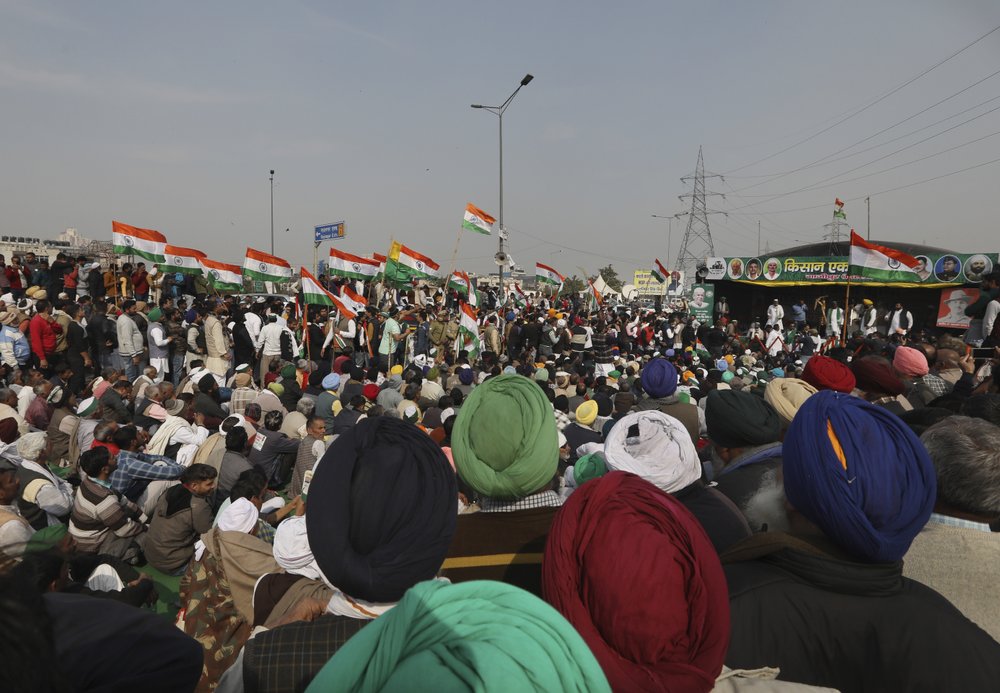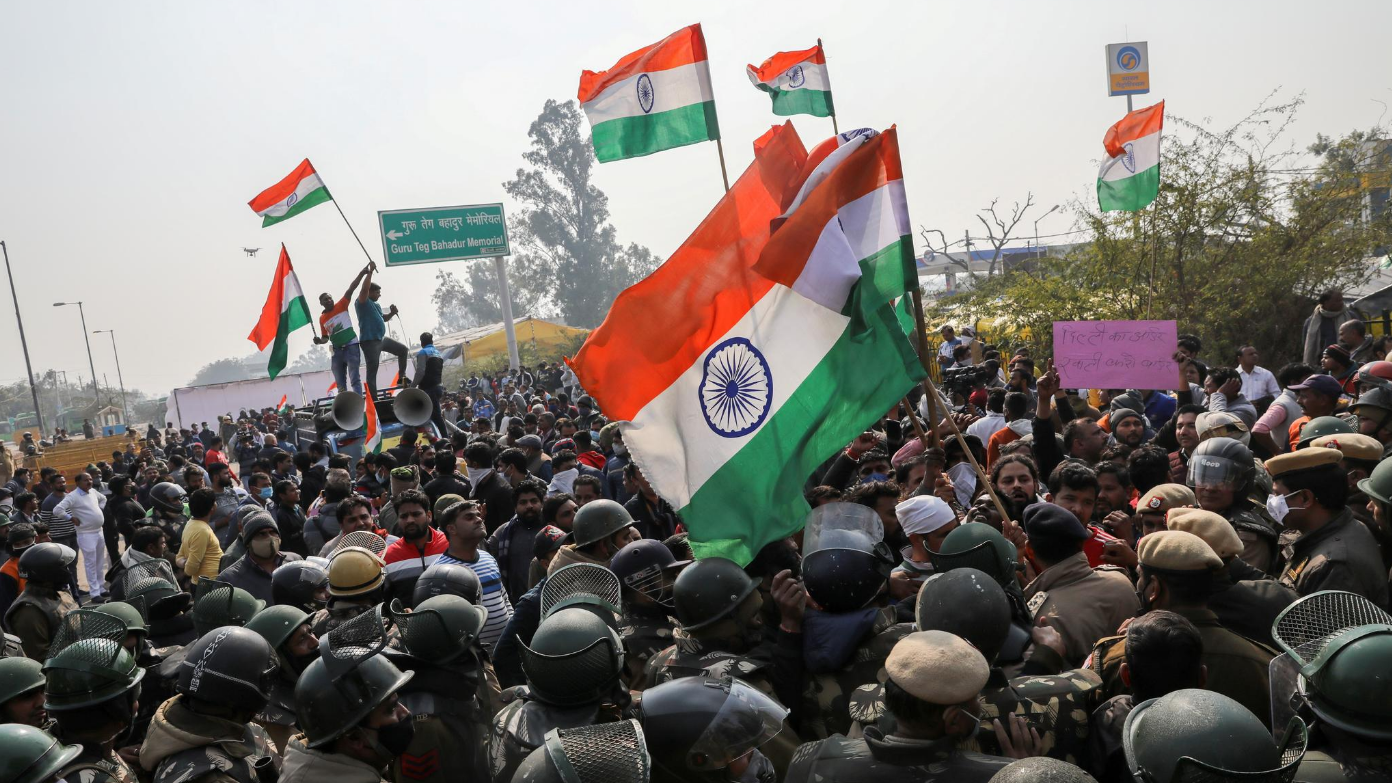
Farmers listen to the speakers during a day-long hunger strike in New Delhi, India, January 30, 2021. /AP
Farmers listen to the speakers during a day-long hunger strike in New Delhi, India, January 30, 2021. /AP
India blocked mobile internet services in several areas around New Delhi on Saturday as protesting farmers began a one-day hunger strike after a week of clashes with authorities that left one dead and hundreds injured.
Angry at new agricultural laws that they say benefit large private food buyers at the expense of producers, tens of thousands of farmers have been camped at protest sites on the outskirts of the capital for more than two months. But Prime Minister Narendra Modi and his allies are reluctant to try to lower the temperature, as they insist that the laws are necessary to modernize Indian agriculture.
At the main protest site near the village of Singhu on the northern outskirts of the city, there was a heightened police presence on Saturday as hundreds of tractors arrived from Haryana, one of two states at the center of the protests.
Farmers' leaders said the hunger strike by hundreds of protesters, primarily at Singhu and two other protest sites, was designed to coincide with the death anniversary of Indian independence leader Mahatma Gandhi, and would show Indians that the demonstrations were non-violent.
"The farmers' movement was peaceful and will be peaceful," said Darshan Pal, a leader of the Samyukt Kisan Morcha group of farmers' unions organizing the protests. "The events on January 30 will be organized to spread the values of truth and non-violence."
"Our movement has gained strength after the Republic Day rally. We have decided that we won't go back," said Sukhdev Singh, another farmers' leader. "If we are to die, we will die here."

People shout slogans and wave India's flags at a site of the protest against farm laws at Singhu border near New Delhi, India, January 29, 2021. /Reuters
People shout slogans and wave India's flags at a site of the protest against farm laws at Singhu border near New Delhi, India, January 29, 2021. /Reuters
The protests pose the biggest challenge to Modi since he took office in 2014 in part because agriculture employs about half of India's population of 1.3 billion, and they're the most influential voting bloc in the country and a key part of the economy. In a rare show of unity, 16 opposition parties boycotted a parliamentary address by the ceremonial president Ram Nath Kovind, who is from Modi's Bharatiya Janata Party.
Both sides appeared to be growing more entrenched.
So far, 11 rounds of talks between farmers' unions and the government have failed to break the deadlock. The government has offered to put the laws on hold for 18 months, but farmers say they will not end their protests for anything less than full repeal.
In the past week, a planned tractor parade on Tuesday's Republic Day anniversary turned violent when some protesters deviated from pre-agreed routes, tore down barricades and clashed with police, who used tear gas to try and restrain them.
Sporadic clashes between protesters, police and groups shouting anti-farmer slogans have broken out on multiple occasions since then.
On Friday, a group of around 200 people barged into one protest site despite heavy security, threw stones at farmers and damaged their tents.
The group demanded that farmers vacate the area and said they had "insulted" the national flag during their tractor parade on the Republic Day. The farmers alleged that the vandals were largely made up of members of a Hindu nationalist group that has close ties with Modi's party.
(With input from AP and Reuters)

